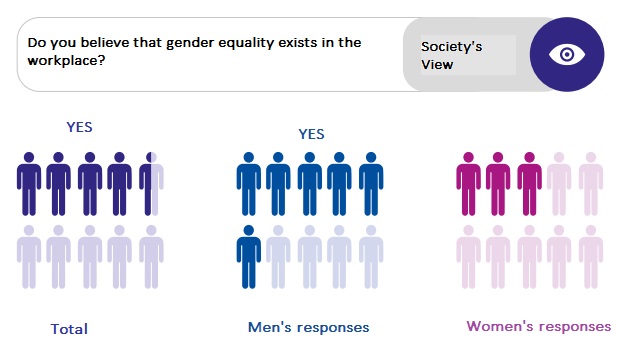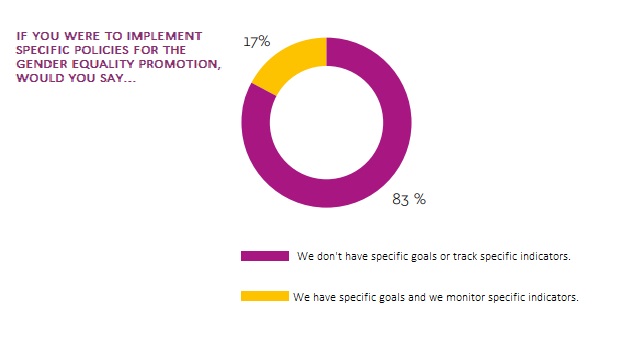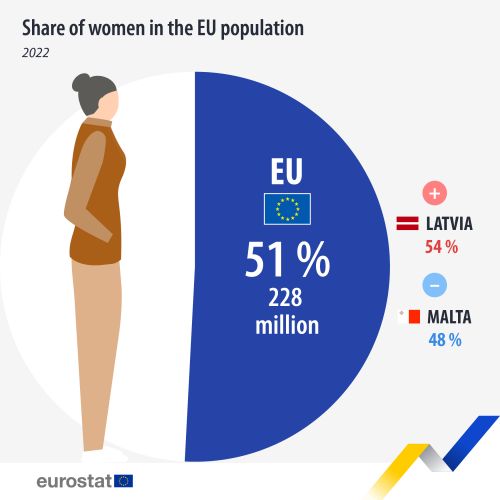The Hellenic Federation of Enterprises (SEV) conducted between March-April 2023, a survey of businesses and the general public in order to capture the current situation and identify any necessary legislative interventions or other business empowerment initiatives.
This survey was organized into 3 sections:
• The position of women in business
• Promoting gender equality
• Business beliefs
The results of the research are then presented with the aim of raising the awareness of both businesses and the State in order to make full equality at work a reality.

According to a survey conducted by the Hellenic Federation of Enterprises (SEV) on the position of women in Greek businesses that was presented to the Association’s General Council, data emerges that for the average Greek is not “news”, but for the average European citizen, it can be an element of “distinction” in the workplace space.

Working women in Greece receive lower wages, are underrepresented in positions of responsibility and still face a multitude of stereotypes. Specifically, the average gross full-time salary for women is 1.115 euros, i.e. 13% lower than the corresponding salary for men (1.284 euros), half of the companies (53%) have zero or very limited (up to 15%) participation of women in the Management Council while one in ten companies (11%) do not trust a female leader in any department or department of the company.
According to this survey:
- 9 out of 10 companies agree that gender equality in business is very important, yet more than 8 out of 10 (83%) do not have specific targets or track specific indicators regarding gender equality.
- Women make up 51.7% of the country’s population and 47.67% of all employees (2022). On the contrary, in the unemployment rate they prevail over men to a greater extent, with 64.2% of the unemployed coming from them.
- However, only 17% of businesses have goals and monitors specific indicators (such as indicative percentages of male/female employees, remuneration, percentages of executives/ administration, etc.) while 83% do not monitor the issue of gender equality in a systematic way. In the big ones businesses, 25% set and track goals.

Moreover, Greece is at 53% of the general equality index based on the European Observatory on Gender Equality, compared to 68% of the EU average, which implies only partial utilization of human capital of the country, with a negative effect on the productivity and international competitiveness of businesses.
As the President of the SEV, mr. Papalexompoulos is noting, “it is extremely important to support businesses and provide them with the right tools so that they can realize that the issue of equality is a factor for survival, development and the establishment of a relationship of trust with society. Our own institutional role is to show the way to inclusion, which has multiple benefits for businesses, employees. It opens up horizons to different perspectives and skills and offers competitive advantages to businesses that follow it.”
In the corresponding direction, Ms. Iulia Tseti, Head of the SEV’s Working Group for Equality, Diversity and Inclusion, states that “The inadequacy of women’s participation in positions of responsibility, it is primarily a matter of a profound lack of culture, but of institutions too. Gender equality should be treated as core value in every company and Organization, while the institutional framework for equality, it is necessary to constantly being evaluated”.
In fact, on the occasion of the research, the SEV is planning for the next period an information and awareness campaign to strengthen the employment of women and promote gender equality at work, entitled “Operation Equality“.
As the research findings show, there are many points where entrepreneurship can focus, put goals and take actions. The most important concerns increasing employment, support for professional growth and development, equal payments, the improvement of benefits and ensuring an equal working environment without harassment and violence. In other words, multiple benefits are recognized from it; implementation of policies for equality at work and all businesses in today’s era need, to pursue and monitor the implementation of equality and to implement governance practices and management systems for its reinforcement. But business initiatives are not enough by themselves, as the culture of inequality it is not created in business, so it is necessary to be combined with public policies and corresponding undertaking actions for the whole of society.
Sources:
- A SEV survey on the position of women in business in Greece (Accessible : https://www.sev.org.gr/wp-content/uploads/2023/07/ENTYPO-GYNAIKES_FINAL_02-1.pdf) (Published online on July 2023)






